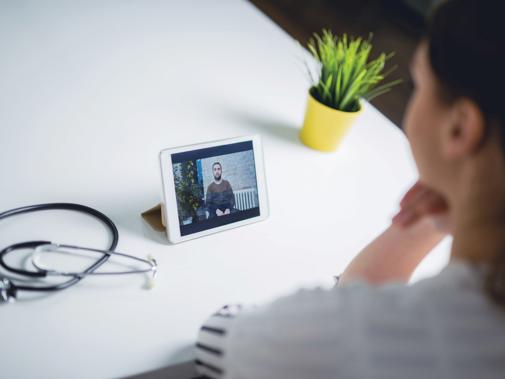COVID-19 has drastically shifted ways of working across all NHS settings, and general practice is no different. Emergency ways of working were instituted almost overnight, with the majority of consultations becoming virtual interactions, and many practices have rapidly created triage systems and ‘hot and cold’ areas of practices so that patients still requiring a face-to-face consultation can be seen safely. Some have even been innovative and created services such as drive-through blood tests to minimise risks for vulnerable patients.
However, as we begin to see COVID-19 cases diminish while the risk from the circulating virus still remains, how do we move back to offering both proactive and reactive care to all of our patients as we continue to work alongside the prevalence of COVID-19?
It feels that there will need to be a careful balance between what is safe and effective for our patients and what is safe for our colleagues and staff. This will be helped by planning and experience, but also require shifting and adapting as we understand how we build on all we have learned during the pandemic. Any future peaks of COVID-19 will, of course, cause yet more shifts… This is work in progress.
It does feel that virtual consultations will become a much more predominant part of how care is provided, and of course for the foreseeable future any face-to-face interactions will require the use of PPE, which does change interactions, but just how models of care will develop long-term is still emerging.
As the sessional GPs committee, one question we are persistently being asked by members is what role sessional GPs will play in the new way general practice will function. Locum GPs, in particular, are concerned about where they will feature as they have experienced a drastic reduction in locum sessions offered during COVID-19.
A number of reasons have been put forward for why practices have needed less locum GP assistance during the pandemic, from the lack of annual leave taken by partner/salaried doctors during COVID-19 to difficulties with enabling locum doctors to work remotely and safely. Many have reported that with many non-clinical roles being stepped down in the pandemic (eg appraisal roles, specialist clinic roles) there has been much more face-to-face time available from partner colleagues and the usual locum cover has not therefore been required.
Whatever the reasons, it has been an anxious time for locums and whilst accepting of the inherent risk taken in choosing to work in a freelance way, many are expressing concerns about their future in general practice and describe feeling sidelined. Indeed, a recent survey by Herts and Beds LMC demonstrated that over 80% of GP locums were worried about their future career.
With sessional GPs now making up more than 40% of our profession, and with a substantial number of sessional GPs being locums, it feels essential to look at how we can support these GPs to remain in general practice. Accordingly, our committee has been working with GPC (the BMA GPs committee) and NHS England colleagues to try and understand ways that our locum workforce can be supported and then integrated more easily into the new ways that general practice will undoubtedly function moving forward.
Discussions have ranged from how to both practically and logistically enable remote working for locums, to how to encourage CCGs (clinical commissioning groups) to ensure locum doctors are included in communications, to negotiations around a locum support scheme.
What feels essential is that, as a profession, we remain unified and try to understand how different elements of the workforce can work together to develop and understand our new ways of working.
Please do liaise with your BMA sessional GPs representative if you would like to know more or offer any insights that can help shape our locum work.
Organisations that can provide support to colleagues experiencing emotional or financial difficulty.
Nicki Kemp is an executive member of the BMA sessional GPs committee

